
San Toy, or The Emperor's Own is a "Chinese" musical comedy in two acts, first performed at Daly's Theatre, London, on 21 October 1899, and ran for 768 performances. The book was written by Edward Morton, and the musical score was written by Sidney Jones with lyrics by Harry Greenbank and Adrian Ross. Additional songs were written by Lionel Monckton. The cast included Marie Tempest, Scott Russell, Huntley Wright and Rutland Barrington.
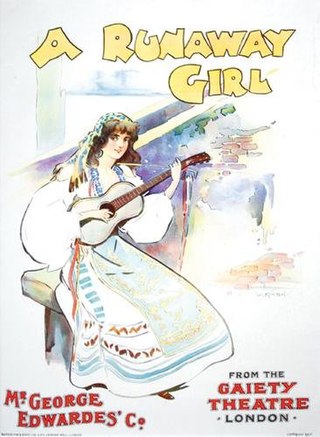
A Runaway Girl is an Edwardian musical comedy in two acts written in 1898 by Seymour Hicks and Harry Nicholls. The composer was Ivan Caryll, with additional music by Lionel Monckton and lyrics by Aubrey Hopwood and Harry Greenbank. It was produced by George Edwardes at the Gaiety Theatre, London, opening on 21 May 1898 and ran for a very successful 593 performances. It starred Hicks's wife, Ellaline Terriss and the comic actor Edmund Payne.

Sir John Blackwood McEwen was a Scottish classical composer and educator. He was professor of harmony and composition at the Royal Academy of Music, London, from 1898 to 1924, and principal from 1924 to 1936. He was a prolific composer, but made few efforts to bring his music to the notice of the general public.

The Toreador is an Edwardian musical comedy in two acts by James T. Tanner and Harry Nicholls, with lyrics by Adrian Ross and Percy Greenbank and music by Ivan Caryll and Lionel Monckton. It opened at the Gaiety Theatre in London, managed by George Edwardes, on 17 June 1901 and ran for an extremely successful 675 performances. It starred Marie Studholme, Gertie Millar, Harry Grattan, Edmund Payne, George Grossmith, Jr. and the young Sidney Bracy. Gabrielle Ray later joined the cast. The show also enjoyed Broadway runs in 1902 and 1904 and toured internationally.
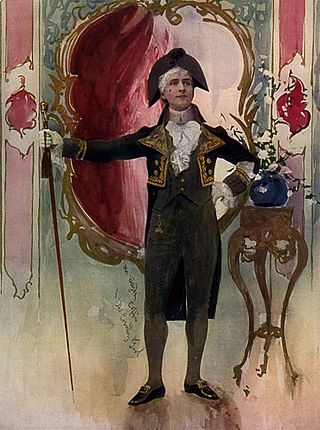
A Country Girl, or, Town and Country is a musical play in two acts by James T. Tanner, with lyrics by Adrian Ross, additional lyrics by Percy Greenbank, music by Lionel Monckton and additional songs by Paul Rubens.
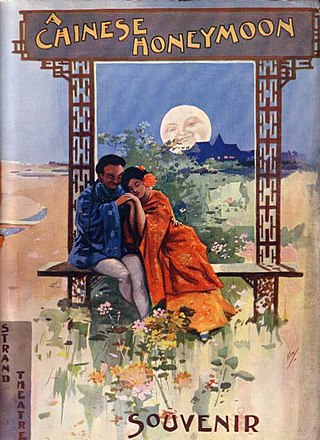
A Chinese Honeymoon is a musical comedy in two acts by George Dance, with music by Howard Talbot and additional music by Ivan Caryll and others, and additional lyrics by Harry Greenbank and others. One song that originated in the show was "Mister Dooley" which became famously associated with The Wizard of Oz for decades, when John Slavin, in the title role, interpolated the song for much of the first year of its run.

Doris is a "comedy opera" in three acts by Alfred Cellier, with a libretto by B. C. Stephenson. After the phenomenal success of Cellier and Stephenson's Dorothy (1886), the pair were hoping for another big hit. Doris turned out to be only modestly successful.

Billee Taylor, or The Reward of Virtue is "a nautical comedy opera" by Edward Solomon, with a libretto by Henry Pottinger Stephens.
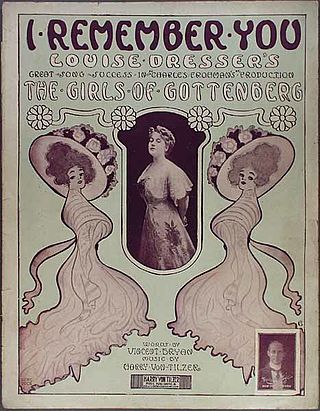
The Girls of Gottenberg is an Edwardian musical comedy in two acts by George Grossmith, Jr. and L. E. Berman, with lyrics by Adrian Ross and Basil Hood, and music by Ivan Caryll and Lionel Monckton. P. G. Wodehouse's personal papers indicate that he wrote the lyrics for one song, "Our Little Way", but this was not included in the libretto of show, and he was not credited as a lyricist. Set in Germany, the comedy of the show is largely based on stereotypes of the German people and their culture as seen seen through a British lens.
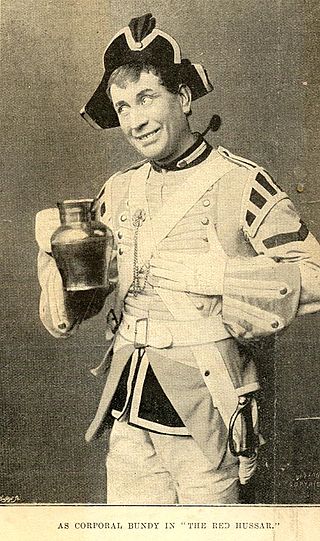
The Red Hussar is a comedy opera in three acts by Edward Solomon, with a libretto by Henry Pottinger Stephens, concerning a young ballad singer who disguises herself as a Hussar to follow her penniless beloved to France. By a feat of gallantry, she saves his life and is promoted to the rank of sergeant. It turns out that she is a rich heiress, and all ends happily.

A Princess of Kensington is an English comic opera in two acts by Edward German to a libretto by Basil Hood, produced by William Greet. The first performance was at the Savoy Theatre, London, on 22 January 1903 and ran for 115 performances.
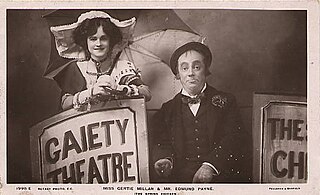
The Spring Chicken is an Edwardian musical comedy adapted by George Grossmith, Jr. from Coquin de Printemps (1897) by Jaime and Duval, with music by Ivan Caryll and Lionel Monckton and lyrics by Adrian Ross, Percy Greenbank and Grossmith. The story takes place in Paris and Château de Malmaison.

Miss Hook of Holland is an English musical comedy in two acts, with music and lyrics by Paul Rubens with a book by Austen Hurgon and Rubens. The show was produced by Frank Curzon and opened at the Prince of Wales Theatre on 31 January 1907, running for a very successful 462 performances. It starred Harry Grattan and Isabel Jay.
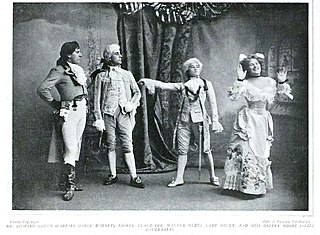
My Lady Molly is a 'comedy opera' in two acts with a libretto by George H. Jessop, with additional lyrics by Percy Greenbank and Charles H. Taylor, and music by Sidney Jones. The story centers around Lady Molly Martingale, a vivacious young woman, who disguises herself as a man to win the man she loves.

Dorothea "Dot" Farley was an American film actress who appeared in 280 motion pictures from 1910 to 1950. She was also known as Dorothy Farley.

The Duenna is a three-act comic opera, mostly composed by Thomas Linley the elder and his son, Thomas Linley the younger, to an English-language libretto by Richard Brinsley Sheridan. At the time, it was considered one of the most successful operas ever staged in England, and its admirers included Samuel Johnson, William Hazlitt and George Byron.
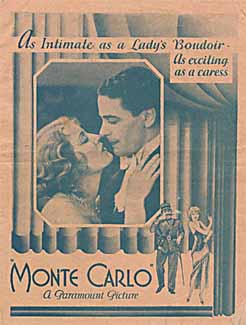
Monte Carlo is a 1930 American pre-Code musical comedy film, directed by Ernst Lubitsch. It co-stars Jack Buchanan as a French Count Rudolph Falliere masquerading as a hairdresser and Jeanette MacDonald as Countess Helene Mara. The film is notable for introducing the song "Beyond the Blue Horizon", which was written for the film and is first performed by MacDonald and a chorus on the soundtrack as she escapes on the train through he countryside. Monte Carlo was hailed by critics as a masterpiece of the newly emerging musical film genre. The screenplay was based on the Booth Tarkington novel Monsieur Beaucaire.

The Girl from Utah is an Edwardian musical comedy in two acts with music by Paul Rubens, and Sidney Jones, a book by James T. Tanner, and lyrics by Adrian Ross, Percy Greenbank and Rubens. The story concerns an American girl who runs away to London to avoid becoming a wealthy Mormon's newest wife. The Mormon follows her to England, but she is rescued from a bigamous marriage by a handsome actor.

Houp La! is an Edwardian musical comedy extravaganza, with music by Nat D. Ayer and Howard Talbot, lyrics by Percy Greenbank and Hugh E. Wright, and a book by Fred Thompson and Hugh E. Wright. The story combines the comic financial troubles of a circus owner with a love triangle.



















